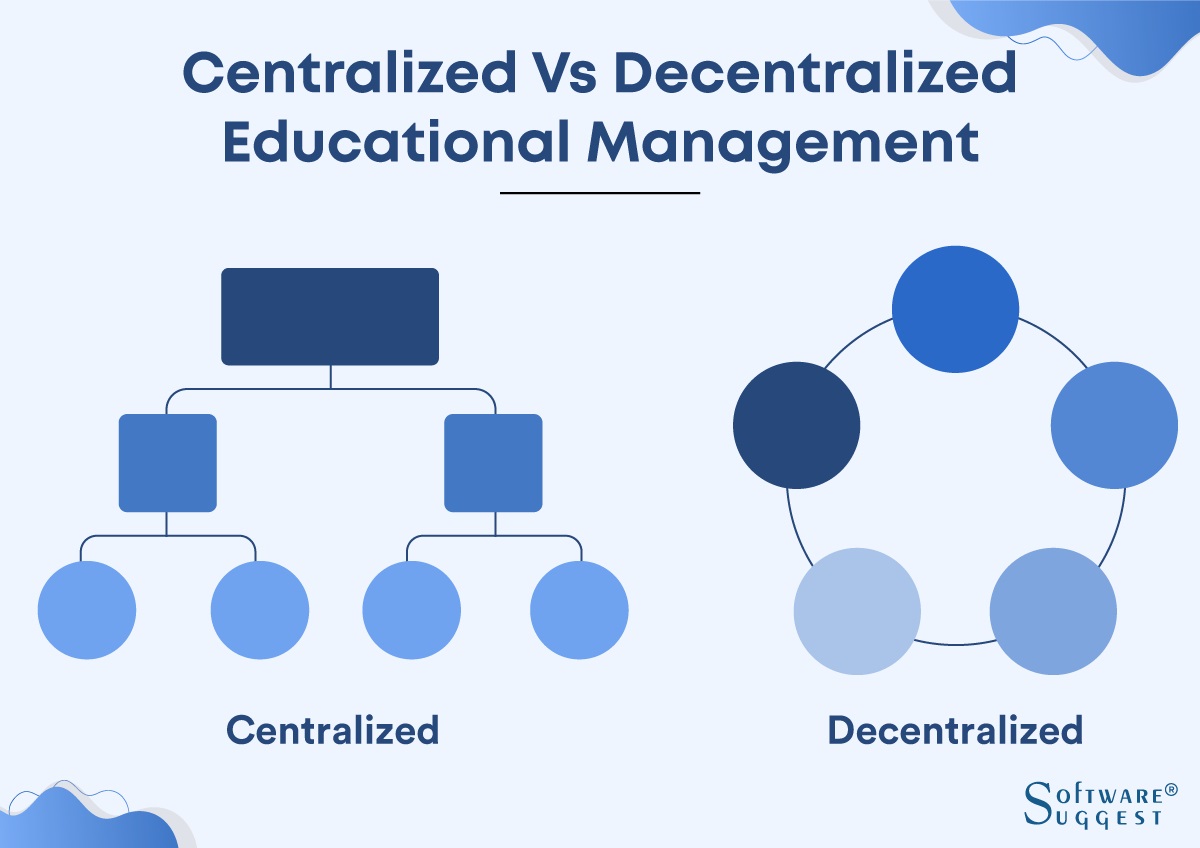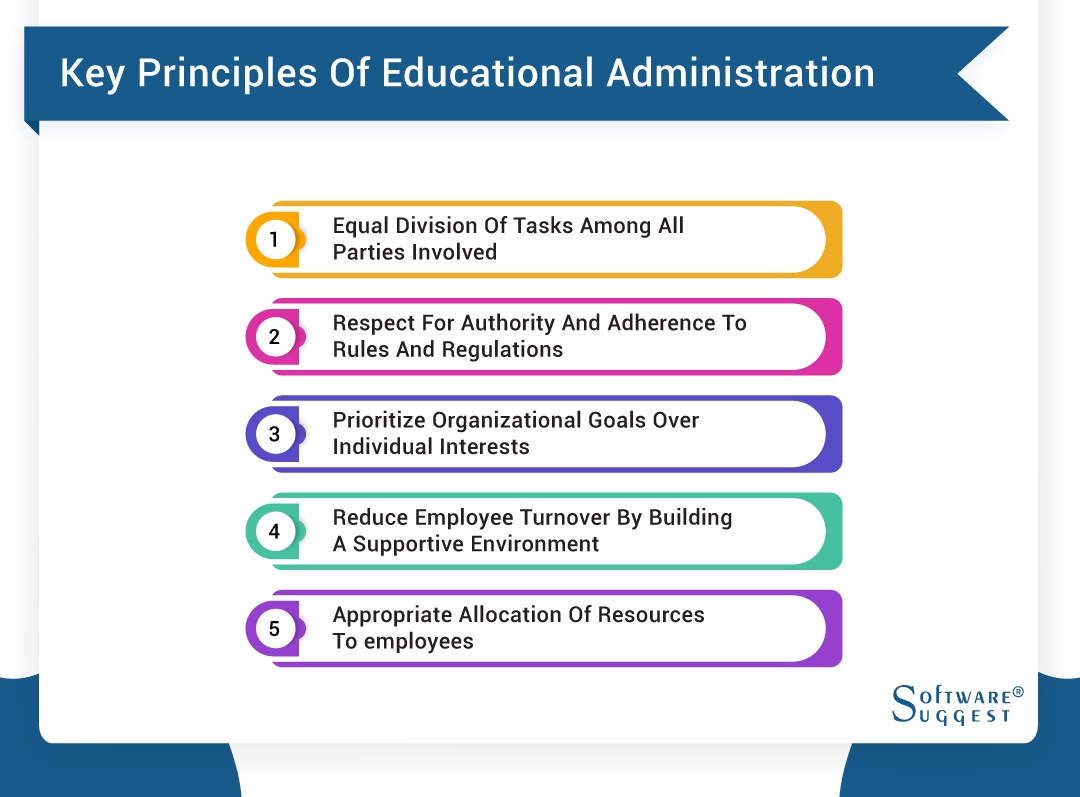Educational management plays a crucial role in shaping the direction, effectiveness, and quality of educational institutions. It encompasses various approaches and strategies that aim to optimize the learning experience and facilitate the overall development of students. This article delves into four distinct types of educational management: centralized and decentralized, external and internal, autocratic and democratic, and creative education management. Understanding the management of an educational institution can provide valuable insights into the diverse approaches employed in educational settings.
Top 4 Types Of Education Management
There are mainly four types of disciplinary ruling and identification of physical resources. All of them are listed below:
- Centralized and Decentralized Education Management
Centralized education management refers to a hierarchical system where decision-making authority lies primarily with a central governing body or administration. This top-down approach allows for standardized policies, streamlined curriculum implementation, and efficient resource allocation. However, it may limit flexibility and hinder local adaptation to specific needs.

Source: softwaresuggest.com
On the other hand, decentralized education management involves devolving decision-making power to local schools, departments, or individual educators. This approach fosters autonomy, encourages innovation, and enables customization based on local requirements. Decentralized management empowers stakeholders and promotes community engagement. However, it may lead to inconsistencies in standards and coordination challenges across different entities.
Hey, do you follow us on Social Media? We regularly share upgraded educational content, tips, feedback and more. Check us out by clicking the profiles here - Facebook / Twitter / LinkedIn / Pinterest / Instagram / YouTube
- External and Internal Education Management
External education management involves the appointment of external entities, such as government bodies, regulatory agencies, or private organizations, to oversee and regulate educational institutions. These external bodies provide accountability, set standards, and ensure compliance. However, excessive external control can stifle creativity and limit local autonomy.
Internal education management, on the other hand, emphasizes the leadership and decision-making responsibilities of the educational institution itself. It allows schools or colleges to have more control over their operations, curriculum design, and instructional strategies. Internal management encourages a sense of ownership and fosters an environment that aligns with the institution's vision and values. Nevertheless, it requires strong leadership and accountability mechanisms to maintain quality and avoid potential biases.
- Autocratic and Democratic Education Management
Autocratic education management relies on a centralized authority figure, often the principal or head of the educational institution, who makes decisions unilaterally and without significant input from others. This approach prioritizes efficiency, uniformity, and discipline. However, it may limit collaboration, suppress creativity, and hinder the development of critical thinking skills among students.
Democratic education management, on the other hand, emphasizes participatory decision-making and shared governance. It promotes collaboration among administrators, teachers, students, and parents, fostering a sense of ownership and inclusivity. This approach encourages creativity, critical thinking, and problem-solving skills among students. However, it may require more time for consensus building and implementation, potentially slowing down administrative processes.
- Creative Education Management
Creative education management focuses on fostering an environment that encourages innovation, experimentation, and imaginative approaches to teaching and learning. This management style promotes student-centered education, active engagement, and the integration of arts, technology, and interdisciplinary subjects.

Source: softwaresuggest.com
Creative education management emphasizes flexibility, adaptability, and the cultivation of 21st-century skills essential for students' future success. However, it requires supportive leadership, a nurturing culture, and ongoing professional development for teachers to effectively implement and sustain creative practices.
Proper Understanding For Better Management
Educational management encompasses various approaches, each with its strengths and limitations. Understanding the nuances of education management provides valuable insights into the diverse strategies employed to promote effective learning environments. By pursuing PG Diploma in Educational Management and adopting an appropriate management style based on the unique context and goals of an educational institution, stakeholders can work together to provide a quality education that prepares students for a dynamic and rapidly evolving world.
Find the right course for you and try out the course. WhatsApp us at +91-6292137532. You can also mail us at act@asiancollegeofteachers.com









